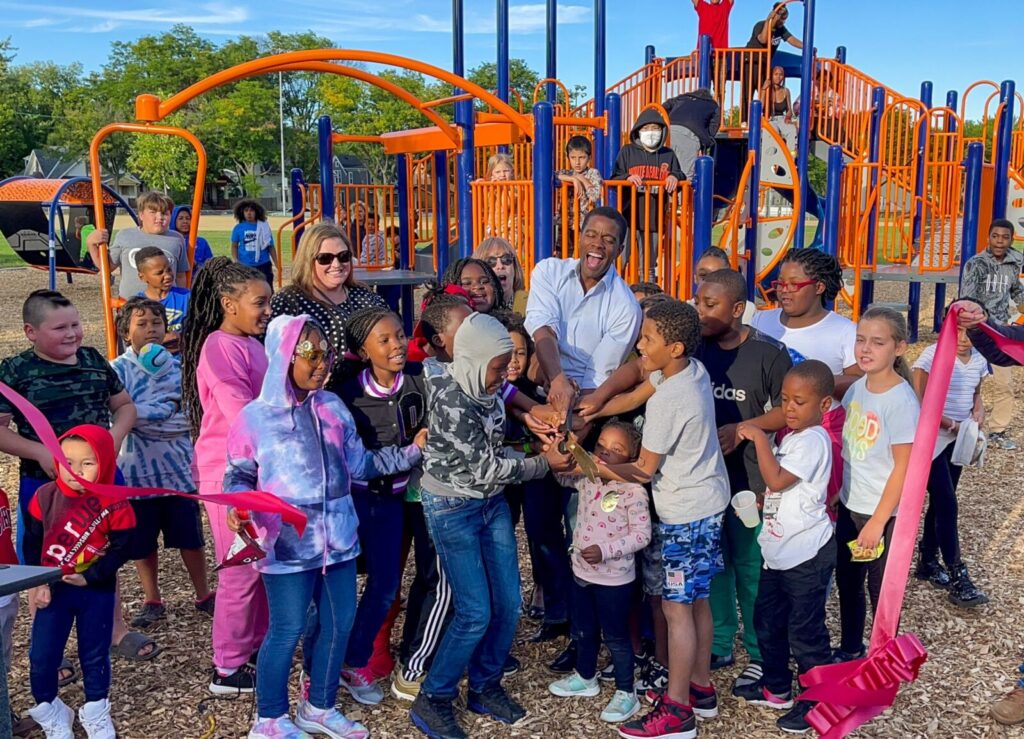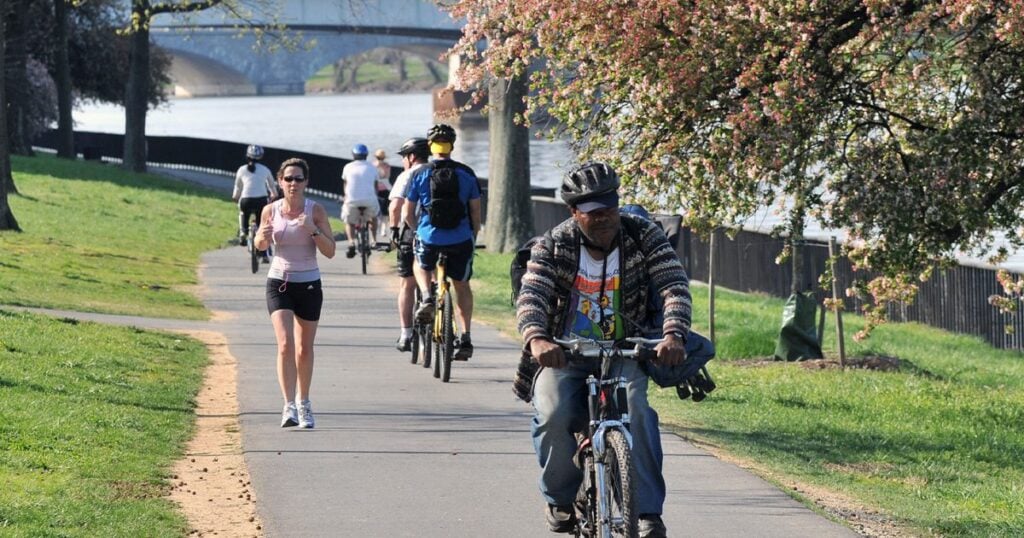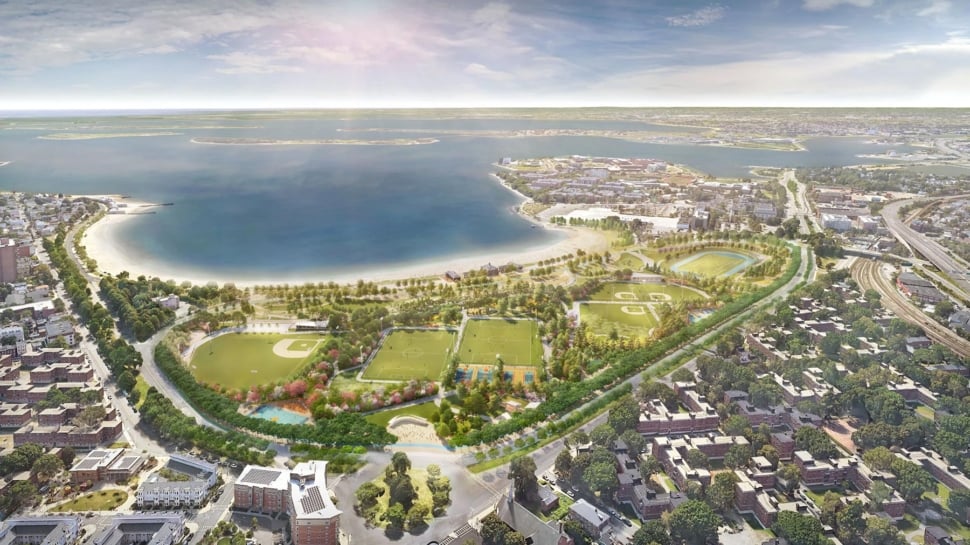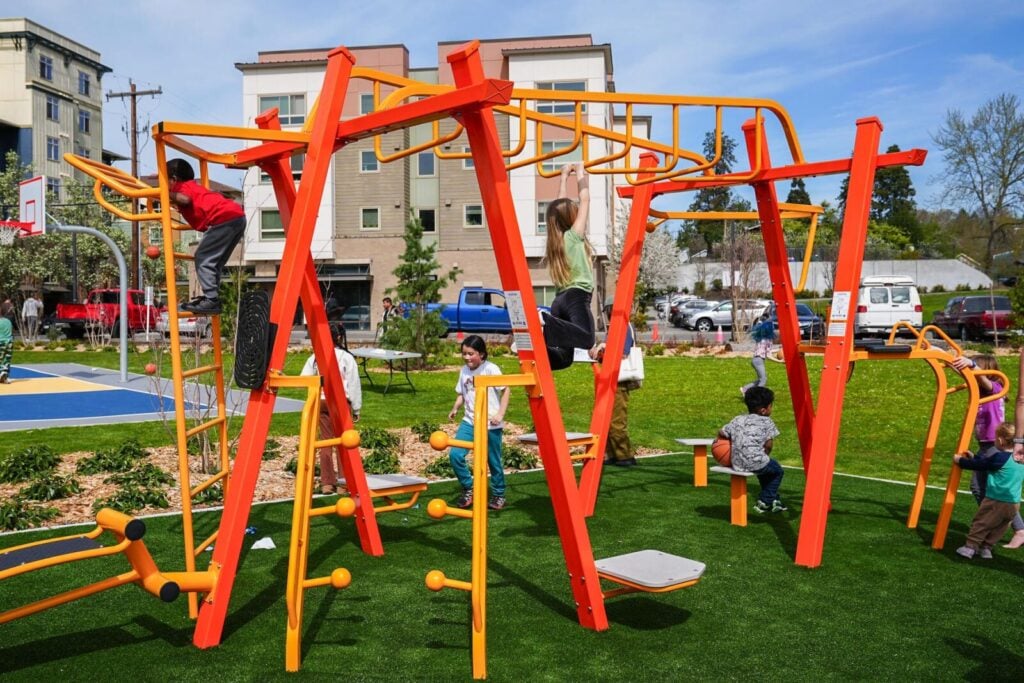In Saint Paul, Outdoor Recreation Legacy Partnership helps a park change with the times, and the community
Saint Paul, Minnesota, school teacher Hannah Reiderer lives right near Fritz Klark Park. But she usually takes her three kids to parks in other parts of town since the local park has become run-down, and the adjacent busy, wide Rice Street is inhospitable.
Saint Paul’s North End neighborhood is one of the most diverse in the city and home to an especially large population of kids. Yet the community’s park has not been on par with green spaces in other parts of the city, Reiderer said, and “there was not a good place to gather, just to relax and hang out.”
That’s all changing now, thanks in part to a $2.4 million grant from the Outdoor Recreation Legacy Partnership (ORLP). Established in 2014, the ORLP focuses on providing outdoor recreation in disadvantaged communities within urban areas. The program funds land acquisition, new park development, and the renovation of existing parks.
The six-acre park in Saint Paul is undergoing a major renovation that will make it much more welcoming, user-friendly, and tailored to the multicultural neighborhood.
“We’re dreaming of what’s to come,” Reiderer said.
Little-used softball fields will be replaced by courts for the popular ball game sepak takraw, a popular sport from Southeast Asia sometimes called “kick volleyball,” and a multi-use artificial turf field. There will be new play equipment, landscaping, lighting, and other amenities. The outdoor improvements come in tandem with the construction of the new 25,000-square-foot community center, all expected to open in November 2024.
“The new North End Community Center will be a wonderful and welcoming space for Saint Paul children and families,” said Saint Paul Mayor Melvin Carter. “Safe, supportive spaces where our youth can connect around common interests with peers and positive role models alike are critical to the future of our city.”

Saint Paul project manager Chris Stark noted that the grass softball fields “were great at the time they were built. But they served the community more then, compared to today, as the community has evolved. The goal is to make more diverse programming on the site for people living there now and using it today.”
The surrounding community is about three-quarters BIPOC (Black, Indigenous, and People of Color) residents, and about a quarter of households live below the federal poverty level. About half of residents are under 30, and almost a third are under age 18, Stark noted.
Parks staff conducted community outreach starting in 2017. Reiderer has been involved since her children were toddlers, she noted. Now, the twins are seven, and her eldest is 10. She’s glad the renovation will happen while her kids are still young.
“They set up lots of events to try to get people’s opinion, kids drew pictures of what they wanted, they had posters with different ideas, people could put stickers on (those) to show their interest,” she recalled.
Her kids participated in the drawing, and while their vision of a splash pad didn’t make it into the final plans, they were thrilled to see the makeover unfolding.
City planners spearheading the effort are likewise enthusiastic.
“We’re really excited about it, it’s not often we receive this amount of space for a project to make a complete renovation,” said landscape architect and Saint Paul project manager Dave Ronzani.
Previously, the park was “all active space,” he continued.
“There was really not much place to relax. We wanted to provide more passive green space, so you’re not in the middle of something very active and high-energy right when you walk in. There’s the opportunity to sit at picnic tables and on benches and take in your day. We all have different interests and like to enjoy spaces differently. This is for everybody.”
The Takraw courts are modeled on popular ones installed at two other Saint Paul parks, Frogtown and Marydale, and were designed with input from local players. New parking, pedestrian access, and energy-efficient lighting also make the park safe and accessible for residents.
“As soon as it opens, it’s going to be a very popular facility,” Stark said.
The updated park was designed with a changing climate in mind. Trees and infrastructure provide shade, and bioswales and other natural features help manage stormwater. The artificial turf requires no irrigation and is also usable shortly after heavy rains and snows, unlike grass fields that would stay muddy and become degraded in inclement weather.
“We don’t have to use fossil fuels essentially to paint the lines (on the field) frequently, or mow, or water the grass,” said Ronzani. “It’s a high initial cost for these fields, but over time, it definitely has benefits.”
Unexpected challenges with stormwater management arose after construction began. An array of pipes was built under the artificial turf field to move water, and storage infrastructure under the play area can hold water and then pump it out for treatment. This had a silver lining, as the resulting mounded topography makes for a more interesting play area. The artificial turf is permeable, and water is filtered and cleaned as it moves through. In all, the park can receive and store runoff from the surrounding 170 acres of residential and other land.
“We knew from the geotechnical testing there was water underneath the surface, but what we didn’t know was how much water from the surrounding neighborhood was coming to this site in a big rain event,” Stark said. “We had to increase the amount of underground stormwater storage. Without the (ORLP) grant, I don’t know how we could have proceeded. It’s a big feature no one will ever see, but it will benefit the community for decades to come.”
Landscaping work will continue this year, with the planting of mostly native vegetation and an improved tree canopy, including honey locust, river birch, hawthorn, white oak, and aspen.
While not funded by the ORLP grant, the community center will complement the outdoor recreation that the grant makes possible. Playground equipment and outdoor amenities for older users were intentionally stationed near the community center, the planners noted. The center will include fitness spaces, community meeting rooms, a community kitchen, a teen center with a recording studio, and staff offices. It will be powered by solar panels and feature geothermal heating and cooling.
And pedestrian-friendly renovations on Rice Street will make it much easier to walk to the park and also across the street to a beloved ice cream and pizza parlor, Reiderer noted.
“This fosters more community,” she said. “We’re so grateful this is happening in Saint Paul’s North End.”
The City Parks Alliance series on the Outdoor Recreation Legacy Partnership was written by Kari Lydersen. Kari is an assistant professor of journalism at Northwestern University and a Chicago-based journalist and author.
Explore and learn more about the impact of the Outdoor Recreation Legacy Partnership
overview
The Outdoor Recreation Legacy Partnership program offers park access and all its benefits to urban dwellers nationwide.

Stamford, CT Story
An urban park embraces its coast in Stamford thanks to the Outdoor Recreation Legacy Partnership.

seattle, WA Story
An “Urban Village” Park in Diverse Seattle Neighborhood thanks to the Outdoor Recreation Legacy Partnership.
